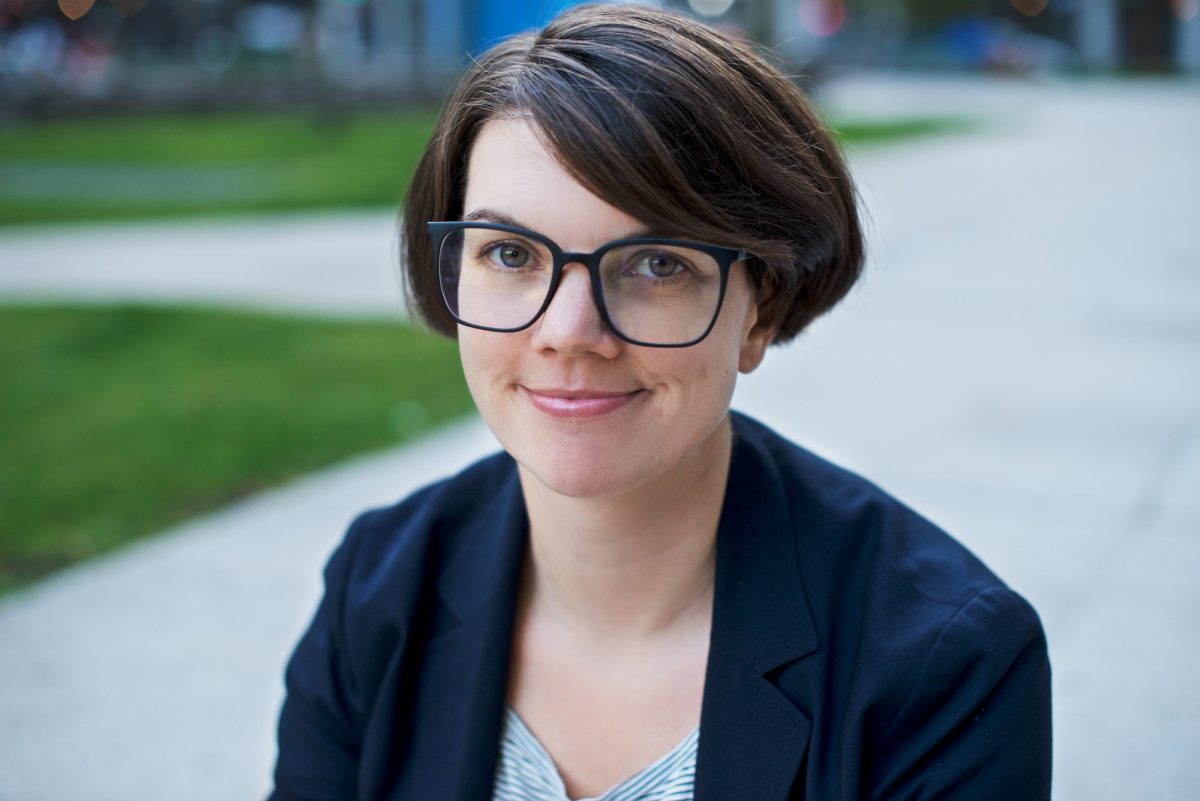
Dr. Nicole Wilson, new Canada Research Chair in Arctic Environmental Change and Governance. Photo credit: K. Ho
Meet Nicole Wilson, the new Canada Research Chair in Arctic Environmental Change and Governance.
Nicole Wilson, the new Canada Research Chair (CRC) in Arctic Environmental Change and Governance recently joined the UM as an assistant professor, environment and geography, Clayton H. Riddell Faculty of Environment, Earth, and Resources; working at the Centre for Earth Observation Science. She was awarded a Tier 2 CRC, which comes with $500,000 in funding over five years from the Social Sciences and Humanities Research Council. UM Today caught up with her to learn a bit about her and the research she is undertaking.
Tell us about your research.
The Arctic system is facing significant social and ecological pressures as a result of climate change, resource development, and shifting geopolitics. These impacts are not experienced equally across Arctic populations, where Indigenous peoples and their territories are seeing some of the most extreme impacts. My research seeks to advance understandings of Arctic Environmental Change and Governance through partnering with Indigenous peoples as they navigate environmental change in unequal social-ecological systems. I use a Community-Based Research (CBR) method—an approach to research that places community questions and concerns at the centre of research agendas—to co-develop research based on the protocols and goals of my Indigenous research partners. Some of my longest community partnerships are in Yukon, Canada, where I work with Yukon First Nations including Carcross/Tagish First Nation to conduct research about the ways Modern Land Claim agreements shape Yukon First Nations’ roles in water governance. As a CRC, I will build on this work through developing new partnerships to look at questions related to water governance and other forms of environmental governance as well as the effects of and responses to climate change in the Arctic and sub-Arctic.
Why is this research important to Canadians?
First, Canada is an Arctic country. Forty per cent of Canada’s landmass is located in the Arctic and this area is home to more than 200,000 people. So, the environmental, social, and political processes occurring in the region are significant to the country as a whole. Climate warming in the Arctic also has impacts globally making this significant to all Canadians as we consider the effects of climate change in this country and around the world. Second, I think we need to pay attention to our colonial history and present. We need to learn about settler colonialism in Canada or the set of policies and practices that dispossess Indigenous peoples of their land for settlement and resource development. Centering Indigenous self-determination in research on environmental governance in Canada is part of that acknowledgement. It’s part of the reconciliation process which is important to all Canadians because it’s about the basics of how we treat each other as human beings and the kind of relationships and communities we want to build for the future. I don’t think Canada can be a thriving and just nation without this.
Tell us a bit about yourself.
Before coming to UM, I was a Post-Doctoral Fellow at the University of British Columbia. I also completed a Ph.D. there in 2018 in Resource Management and Environmental Studies. UM is a great fit for the kind of research I want to do because of the university’s strengths in Indigenous research and on the Arctic, climate change and sustainable water management. As a social scientist who enjoys collaborating with natural scientists, I was also very excited to join the Centre for Earth Observation Science.
What does CRC funding mean to you as a researcher?
CRC funding provides the resources, time and space that is needed to develop a CBR program. This is particularly important when conducting research with Indigenous peoples to respect their self-determination and protocols in research and will allow me the time to build those community partnerships.
How did you feel when you learned you were awarded your Canada Research Chair?
I felt honoured. I also felt incredibly responsible. Being a CRC comes with significant resources and privilege and therefore responsibility to do research that contributes to positive social change and societal benefits.
What inspires you?
As a scholar of settler origin, I am inspired to do this work because I take seriously my responsibility to learn about historical and ongoing colonialism in this country, and the ways it informs how Indigenous peoples are experiencing and navigating environmental change. The communities I work with motivate my work. I have learned a lot from the many, many Indigenous scholars in Canada who work on questions related to Indigenous governance and relationships to the environment. To name just a few, this includes people scholars like Kiera Ladner at UM, Deborah McGregor at York University, Aimée Craft at the University of Ottawa and Zoey Todd at Carleton.
What about you would people find surprising?
I have always wanted to live in Winnipeg. This fact has surprised a few people! However, I am sure my love of the city will come as no surprise to the people who know it.
Do you have any advice for students/young grad students starting their career?
Take the time to work on side projects and attend conferences and events that will broaden your skillset and understanding of the field you are working in. It is important to stay focused to complete your thesis or your degree but when it comes to figuring out your career path and developing networks this broader view is really important. I would also recommend that students reach out to people whose careers inspire them to ask for an informational interview (informal conversations you can have with someone who is working in an area of interest to you).
Research at the University of Manitoba is partially supported by funding from the Government of Canada Research Support Fund.






